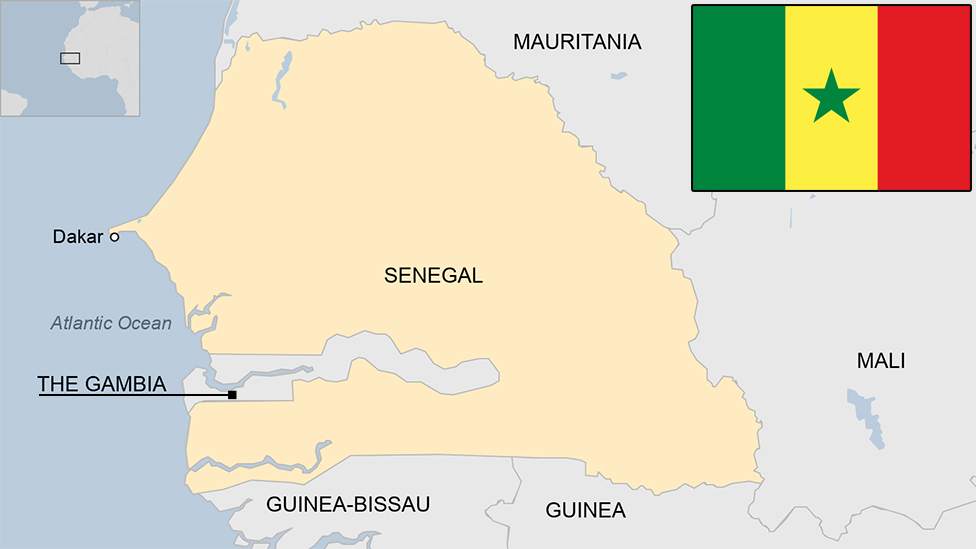Senegal election: Rival coalitions challenge for seats
- Published
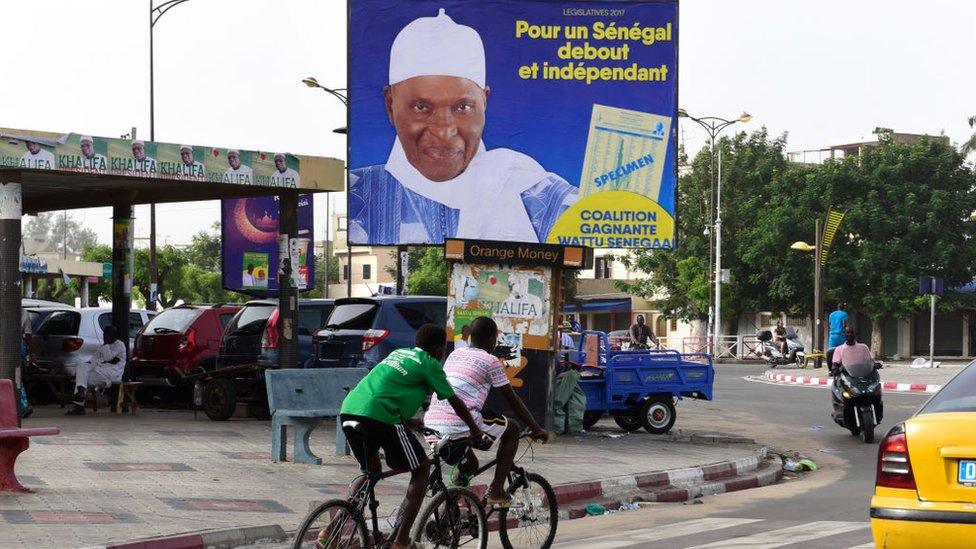
Former president Abdoulaye Wade 91 (pictured in poster) is running for office again
The people of Senegal go to the polls on 30 July to elect a new parliament in an exercise widely seen as a test run of the 2019 presidential election.
President Macky Sall's ruling coalition Benno Bokk Yakaar is likely to retain its majority due to a fractured opposition.
Former President Abdoulaye Wade, 91, is running for a seat on an opposition coalition ticket. Three rival coalition groups are fielding candidates in this election.
The number of seats in parliament is up by 15 to 165, this was agreed to under a new constitution, in order to allow for direct representation of the Senegalese diaspora.
Senegalese abroad are considered a significant economic force.
Sporadic incidents of violence such as attacks on campaign convoys and clashes between rival supporters have been reported since campaigns started on 10 July.
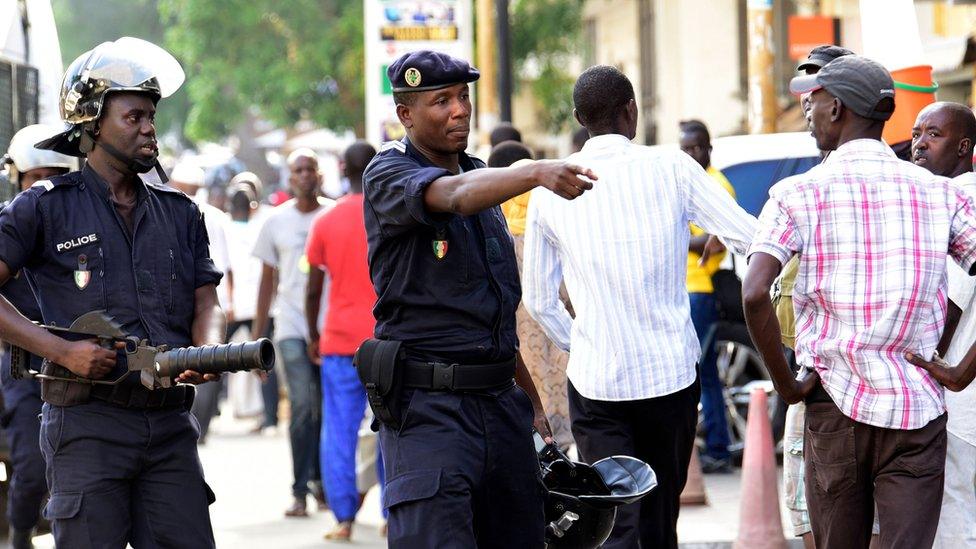
Police in Dakar have dealt with clashes between rival supporters during the campaign
Who are the main players?
The ruling Benno Bokk Yakaar coalition was formed prior to the 2012 legislative election. Its name translates as "United in Hope" in the widely spoken Wolof language.
The coalition won a commanding majority in the 2012 poll, securing 119 of the 150 seats in the National Assembly.
Incumbent Prime Minister Mohamed Boun Abdallah Dionne has been chosen to be the flag bearer for the ruling coalition's list of candidates in the forthcoming election.
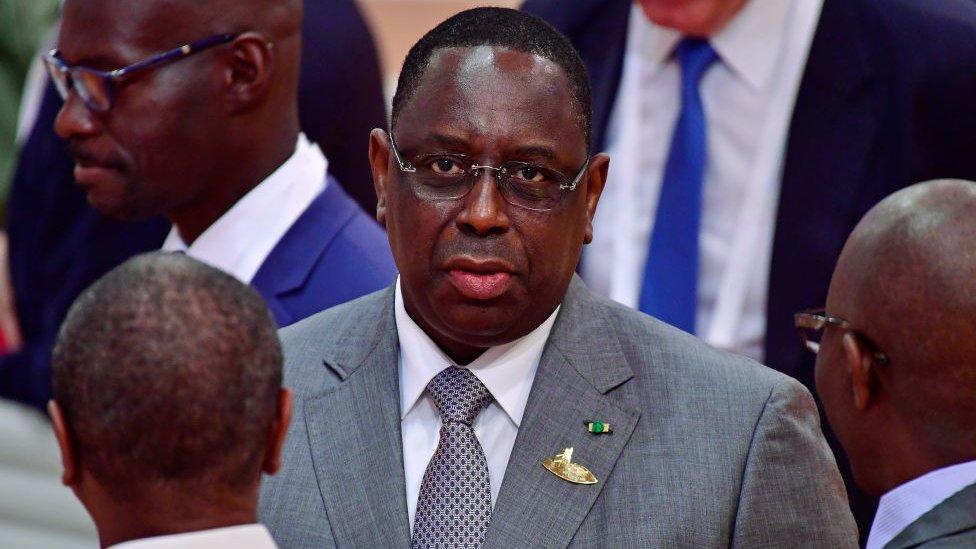
President Macky Sall was Senegal's prime minister 2004 - 2007
Attempts to form a unified opposition coalition have, however, failed following disputes over who should head the joint national list.
The Manko Taxawu Senegal (Coalition for the Revival of Senegal) was formed in March under the supervision of former President Abdoulaye Wade, the former Prime Minister Idrissa Seck and the Mayor of Dakar Khalifa Sall, who is currently detained on fraud allegations.
The coalition split after some of the constituent parties protested against having Mr Sall as their flag bearer.
The detained mayor, who says the charges against him are politically motivated, also rejected a proposal that the coalition should be led by a member of Mr Wade's Senegalese Democratic Party (PDS).
Eventually Khalifa Sall was named to head the Manko Taxawu Senegal coalition despite his being in jail.
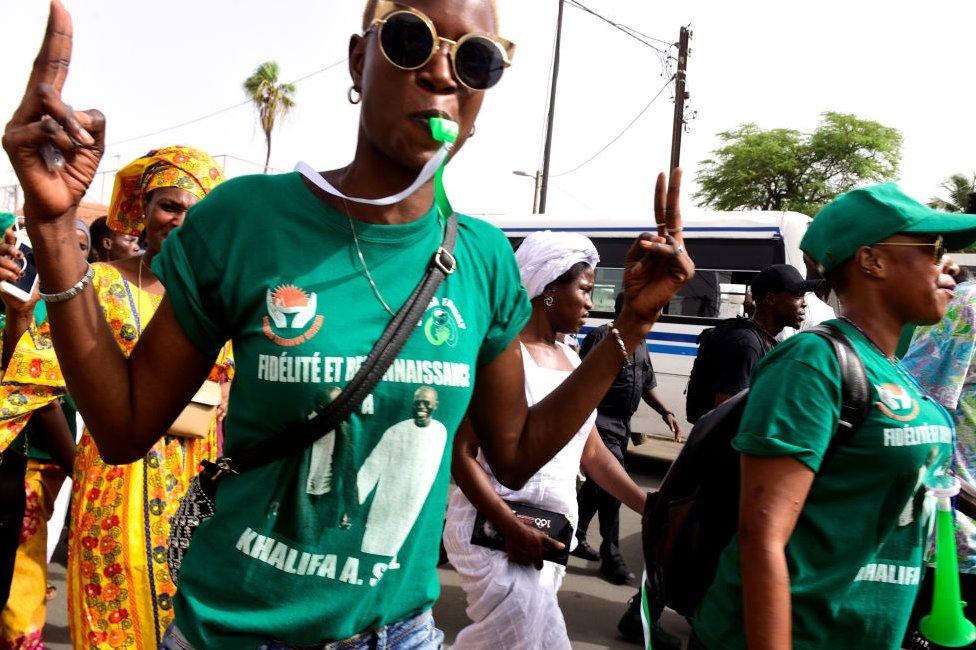
Supporters of jailed Dakar mayor Khalifa Sall
Mr Wade then formed a new coalition called Wattu Senegal (Winning Coalition) with several smaller parties.
The former president has led the PDS since 1974 and is widely expected to win his seat, although the coalition as a whole is unlikely to do well in the elections due to internal wrangles over his push to name his son, Karim Wade, as his successor.
The third coalition is made up of democratic reformists under the banner of Mankoo Yeessal Senegal, headed by Modou Diagne Fada.
What happened last time?
Benno Bokk Yakaar's landslide victory in 2012 came off the back of a strong win for Mr Macky Sall in the second round of the presidential election against Mr Wade earlier that year.
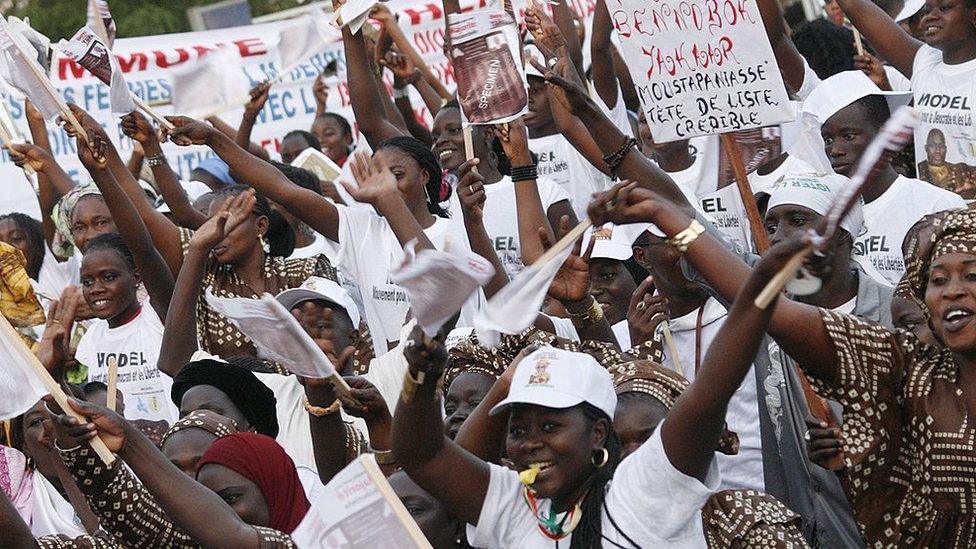
Benno Bokk Yakaar enjoyed a big victory in 2012
The PDS, which had been the main party of the majority coalition during Mr Wade's 12-year presidency collapsed from 131 seats to just 12, while a coalition of PDS dissidents took four seats.
Smaller parties shared the remaining seats, with nine seats being taken by parties led by religious leaders in a secular nation with a largely Muslim population.
The 2012 election was significant due to a new law which required parties to offer gender parity in their candidate lists.
As a result, 64 female MPs were elected.
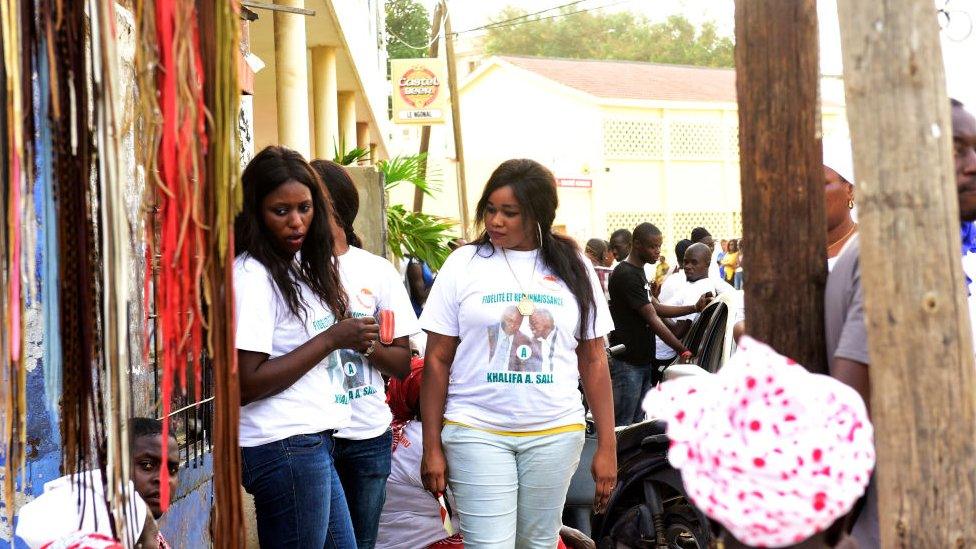
Turnout in the last election was not high
Turnout in Senegal's last two parliamentary elections has been around the 35% mark.
Is there a chance of unrest?
Senegal is considered to be a bastion of democracy in West Africa and remains the only country in the region never to have experienced a military coup.
However it is not immune to political violence, and several incidents have been reported during the campaign.
On 14 July, supporters of Benno Bokk Yakaar clashed with those of the Mankoo Taxawu Senegal coalition in the Grand Yoff area of Dakar, leaving many injured.
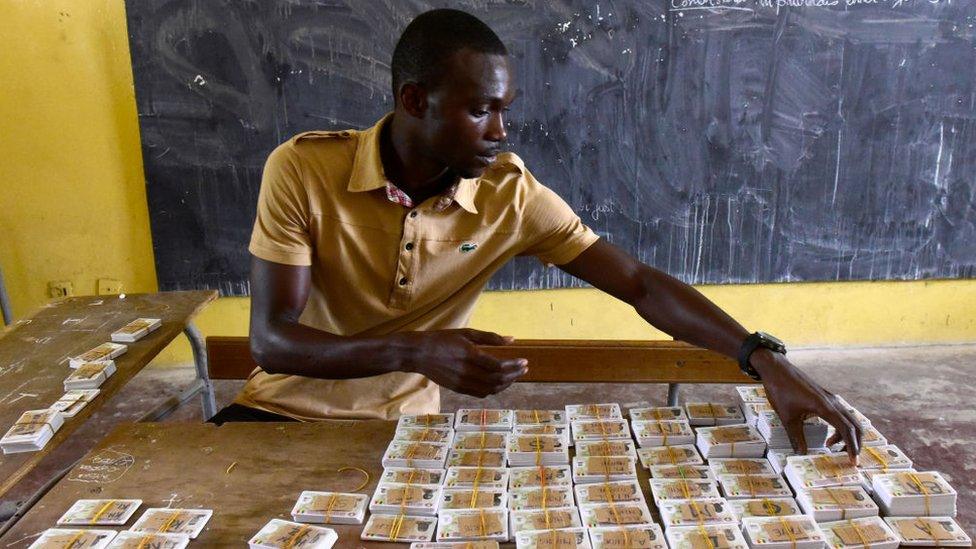
There have been delays with the issuing of voting cards
The opposition had planned to stage protests over delays in issuing biometric voting cards on 25 July, but these were dispersed by security services firing tear gas.
The fear of the demonstrations turning violent was enough to prompt the US embassy to issue a security alert.
Interior Minister Aboulaye Daouda Diallo says that more than 70% of cards have been issued and has rejected calls for a delay to the election.
The first results are expected on Monday.
BBC Monitoring reports and analyses news from TV, radio, web and print media around the world. You can follow BBC Monitoring on Twitter, external.
- Published16 July 2017
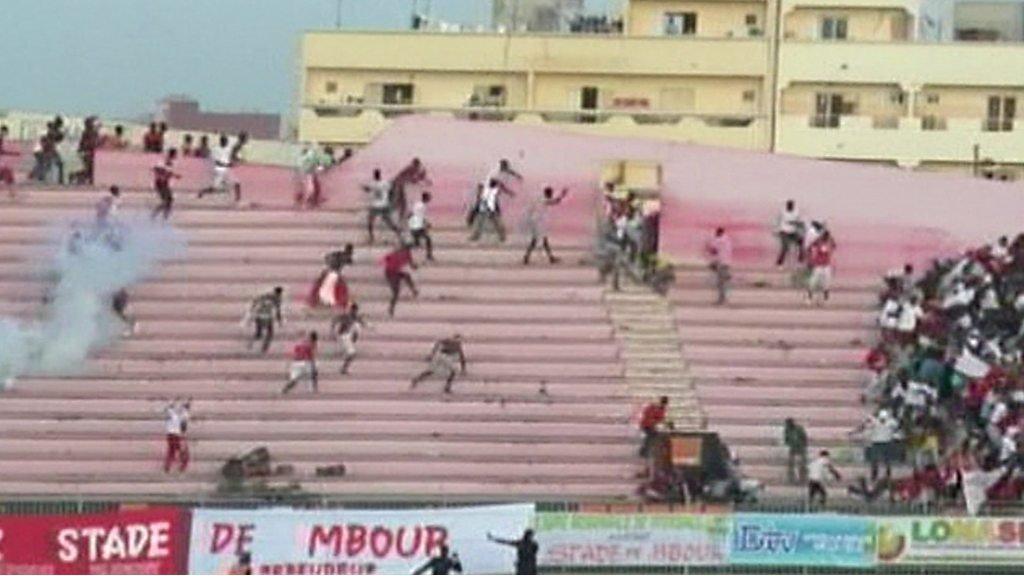
- Published9 July 2024
